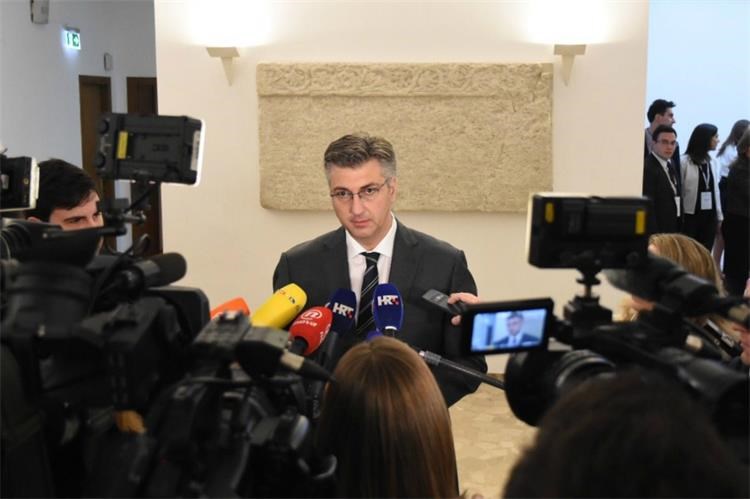


"It would be great for Croatia if she was to be selected," Plenkovic told reporters.
"First of all, she is a good minister and secondly she has all the qualities needed to be the Council of Europe's secretary-general," he added.
Should she be selected, he underscored, Pejcinovic Buric would be the second woman ever to head that pan-European organisation and the first woman in that position from central and eastern Europe.
"She would be the highest Croatian official ever selected... by a decision of the Parliamentary Assembly and not based on a quota," the prime minister said.
"The message we sent since being in power is that we have no tolerance to violence. We recognised this horrible social phenomenon which exists... but with all the mechanisms state authorities have at their disposal, we need to do everything to prevent violence, to harshly punish perpetrators, help victims, bolster institutions and raise public awareness," Plenkovic told reporters.
Asked what ministers were doing if citizens had to hold a protest to point to violence, he said a lot was being done in implementing the Council of Europe Convention on preventing and combating violence against women and domestic violence.
Plenkovic said there had been no self-promotion in the fact that he attended Saturday's protest against violence. "There was, recognising the problem, having sympathy for those who experienced violence, respecting the initiative that (organised the protest)."
He said the government had addressed the problem but that state mechanisms, because of the law, institutional shortcomings and insufficient coordination, had not tackled it. He said these were processes that took time and that it was good that citizens and initiatives pointed to the extent of violence.
"The (Istanbul) Convention went into force on October 1, after which we signed a protocol on cooperation between ministries, after which the Ministry of Demography, Family, Youth and Social Policy prepared a protocol on the procedures of every department with regard to protection from violence which will be put to public consultation this week."
Plenkovic said Croatia's implementation of the Convention would be overseen as of 2020 by the GREVIO expert group. "The Council of Europe learned from experience that it takes at least three to four years to implement legislative novelties."
Text: Hina